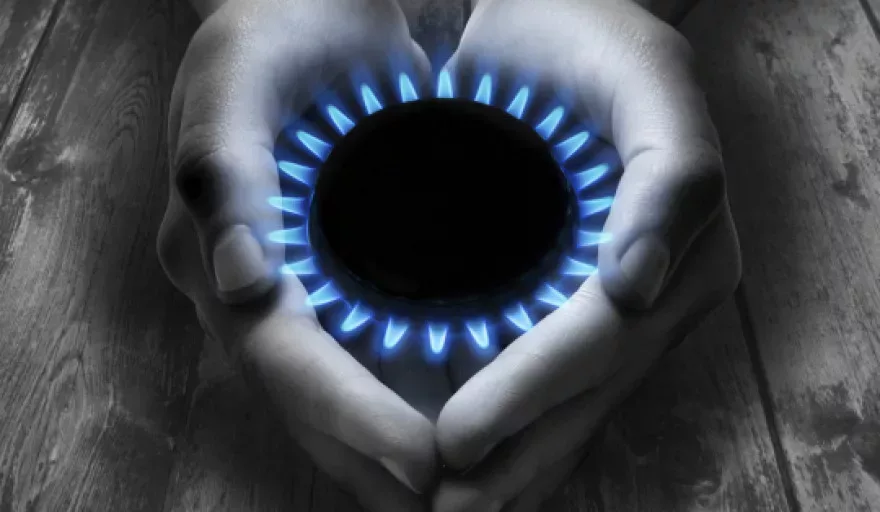Ahead of June’s World Gas Conference in Paris, the International Gas Union (IGU) President Jérôme Ferrier shares his thoughts on the role that Africa can play in vital discussions about the energy industry’s future.
This year is an unprecedented year in the global gas industry. The developmental challenges currently faced by the world have never before been considered with such urgency. The resulting opportunity for our sector to take part in the efforts to address these global goals must not be missed.
Africa is a continent with extraordinary resources. But as the energy demands of its communities steadily grow, there remains a significant hurdle to overcome in setting in place the right policy, skills and development framework to enable them to be met over the longer term. Africa is one of the regions that is most vulnerable to climate change and faces issues around access to, and affordability of, energy supplies and the resilience of its infrastructure. There are, however, exciting times ahead and, crucially, gas is well positioned to play a central role. The potential for shale gas, liquid natural gas (LNG), offshore discoveries and global export/import opportunities mean that the goal of providing reliable, affordable and safe energy to all Africans is becoming a reality.
The 2014 Africa World Energy Outlook report by the International Energy Agency calls Sub-Saharan Africa “one of the most poorly understood parts of the global energy system”. It is a fascinating continent rich in resources and potential with a rapidly increasing energy portfolio. The report also identifies that “since 2000, Sub-Saharan Africa has seen rapid economic growth and energy use has risen by 45 percent”. Previously under-served African communities require greater access to information, technology and infrastructure, and it is essential that world leaders gather together to enable greater and more affordable supplies of energy to the poorest parts of Africa. Energy is the key to social development and we are now in a race to address the world’s most urgent development challenges. As United Nations Secretary General Ban-Ki Moon put it, of all the Millennium Development Goals, energy represents the “golden thread” that links them all together.
African countries are rich in natural resources but often poor in supply and connectivity. In the IGU World LNG report 2014, we identified that volumes of gas from Nigeria, Equatorial Guinea, Algeria, Egypt and most recently Angola, made Africa the third-largest LNG producing region in 2013. Looking to the future, East Africa is well positioned to feed the ever increasing demand from Asian buyers, and beyond North America, major gas discoveries since 2010 off the coast of Mozambique and Tanzania have led to the development of several liquefaction projects, marking East Africa out as an important new development area. In fact, liquefaction capacity in Africa has grown 14 percent since 2008 with the introduction of new capacity in Algeria and Angola.
The debate over Africa’s vast energy development opportunities takes on a new urgency, however, while simultaneously addressing and overcoming current challenges. How can existing and emerging oil & gas producers maximise the value of their resources for economic development? How can Africa’s resources be translated into sustainable and evenly distributed growth? As African economies continue to grow, so too do the opportunities to broaden the energy mix, set in place an energy system that addresses climate considerations more progressively and enable larger and more resilient infrastructure to be developed, which will meet energy demands of growing communities well into the future.
As President of the IGU, I am determined that by working together at events such as the 26th World Gas Conference in June, the gas sector can play a vital role in the important steps taken towards securing a sustainable future mix for Africa. Sector leaders must seize the opportunity to set out a clear platform to ensure that the value of gas is realised to its fullest extent.
For the IGU, it is vital that the needs of communities throughout Africa are represented fully. With nineteen major producers of oil & gas in Africa, these nations have an important role to play in the debates taking place at industry events this year, including our own World Gas Conference and, in December, COP21, which promises to be the most important global climate negotiation in recent years.
France has a long history of working collaboratively with its partners in Africa. I very much hope that the 26th World Gas Conference in Paris can unlock new opportunities to further these relationships and provide long-term solutions to meeting the rapidly growing needs of some of the fastest developing communities on earth.
THE 26TH WORLD GAS CONFERENCE
The role of IGU is to advocate gas as an integral part of a sustainable global energy system, and to promote the political, technical and economic progress of the gas industry. In the months preceding the 26th World Gas conference, Paris, 1-5 June, 2015 (WGCPARIS2015), France, which has held the IGU Presidency for the last three years and itself a major gas hub, eagerly anticipates the arrival of more than 4,000 delegates, attending 100 conference sessions, to Paris.
By Jérôme Ferrier, the President of IGU
Read the full article in the latest issue of Africa Outlook here


























